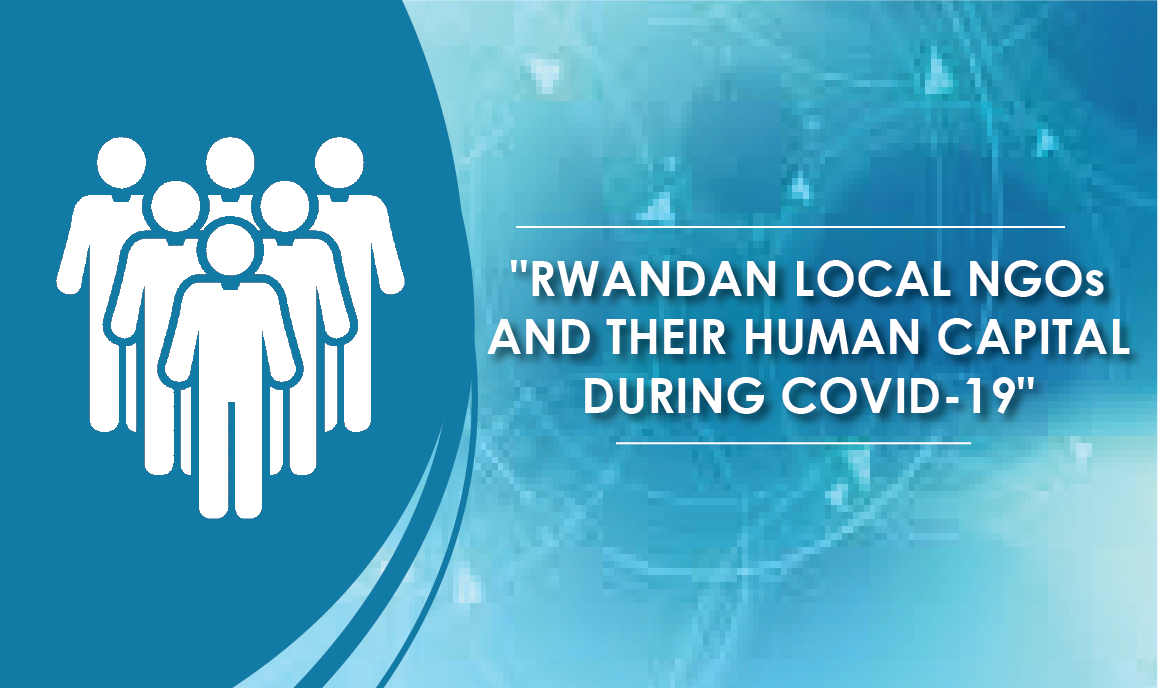Human capital refers to knowledge, education, work competence, and psychometric evaluations[1]. Human capital is not considered as a simple input, since it plays a more complicated role in the process of producing goods or providing services[2]. The COVID-19 has caused significant business disruption to businesses and offices alike throughout the country.
As the situation continues to remain fluid, personnel are facing significant challenges[3]. The challenges in regard to human capital may include loss of NGOs’ employees, development of trauma, depressions and anxiety.
To show the significance of the issue, on 18th March, 2020, the WHO Department of Mental Health published guidelines for mental health and psychosocial considerations during the COVID-19 outbreak that can be used in communications to support mental and psychosocial well-being in different target groups during the outbreak[4].
In addition, on 18th March, the International Labour Organization (ILO) warned that the economic fallout from coronavirus could cause the loss of up to 25 million jobs[5]. While in Rwanda, it is not yet clear about the measures taken by NGOs in regards to employment contracts amid the COVID-19 pandemic, it is likely, if the situation continues to deteriorate, and some contracts will be suspended or terminated to avoid the salary burden.
It is very hard to continue paying salaries from the fixed budgets while activities have stopped. Again, the employment contract suspensions by the economic technology is valid according to 2018 Rwandan Labor law, in its article 21[6], where an employer can suspend employment contracts for the period of 90 days in a year.
Also, according to the Article 31 of the same law, the employer can terminate the employment contracts for economic or technological reasons but must pay employee’s terminal benefits[7]. While there is no information on NGOs that have applied what said above, some businesses, companies and organizations have suspended employment contracts of few or all employees. For example, in a press statement on 26th April 2020, RwandAir announced that it would be implementing several temporary measures to reduce expenditure, including the reduction in employee’s salaries citing economic reasons as consequences of COVID-19[8].
Similarly, some NGOs are likely to act in the same way in case their financials continue to exacerbate. Actually, NGOs have received fixed and non-flexible grants from donors to implement the submitted programs and achieve pre-agreed milestones and impacts. However, most of activities have been closed and employees are working at home due to COVID19, something that obliged NGOs to continue paying salaries and other costs. If there is no flexibility on donor’s side to amend grants and other supportive mechanisms, NGOs will likely shut down and terminate contracts.
Furthermore, NGOs will be required to request non-cost extensions when the situation improves, and in this case, the employees will be required to implement remaining activities but there will be no money to pay their salaries.
With the above situation, local NGOs are facing the following challenges: First, local NGOs may lose their skilled and competent staff. For example employees whose contracts were suspended or terminated may get new employment. Second, the termination and suspensions of contracts will fuel the conflicts between organizations and employees, and in some cases, local NGOs may be taken to court by some of employees who feel their contractual rights have been violated. Third, COVID-19 should have psychologically affected employees, and when work resumes, NGOs will be required to organize psychotherapeutic sessions for their employees, something that will cost extra money to local NGOs.
Lastly, when work resumes, staff and management at all levels will be stressed by the speed of activities to meet delayed deadlines, submit the deliverables to donors, manage non-cost extensions and seek new funding opportunities. With this speed, there will no time for capacity building, meetings and coaching sessions, and this may cause psychological distress and eventually compromise the quality.
The local NGOs managers need to establish alternative ways of communicating with staff working at home to check in with their work progress, challenges and safety during this period. For example through; webinars, video conferencing, WhatsApp groups, Skype and emails among many other efficient meeting platforms.
In addition, local NGOs need to communicate often and cooperate with their staff during this period to keep the connection between employers and employees. Favourable measures should be adopted such as continuing to pay staff salaries if budgets allow, rather than terminating or suspending their contracts. In addition, before taking decisions to terminate or suspend any employment contracts, there is a need for mutual, trusted and open discussions between employers and employees. Where possible, there is need to engage legal experts to analyse the legal implications and avoid future court proceedings.
Whether
NGOs cut back on staff by furloughing them, or sending them on a compulsory
paid annual leave or even letting them go, many local NGOs may have to scale
back on their programs, while others may not survive without funding changes.
[1] Namasivayam & Denizci, 2006) Human capital in service organizations: Identifying value drivers. Journal of Intellectual Capital, 7(3), 381–393.
[2]https://www.researchgate.net/publication/308740770_A_Review_of_the_yam,%20K.,%20&%20Denizci,%20B.%20(2006).%20Human%20capital%20in%20service%20organizations:%20Identifying%20value%20drivers.%20Journal%20of%20Intellectual%20Capital,%207(3),%20381%E2%80%93393.Role_of_Human_Capital_in_the_Organization
[3] https://www.vietnam-briefing.com/news/covid-19-managing-human-resources-vietnam.html/
[4] https://www.who.int/docs/default-source/coronaviruse/mental-health-considerations.pdf
[5]https://www.aa.com.tr/en/economy/un-body-warns-of-up-to-25m-job-losses-due-to-covid-19/1771040
[6]http://www.gmo.gov.rw/fileadmin/user_upload/laws%20and%20policies/New_Labour_Law_2018.pdf
[7] http://www.gmo.gov.rw/fileadmin/user_upload/laws%20and%20policies/New_Labour_Law_2018.pdf
[8] https://twitter.com/FlyRwandAir/status/1254422523653087237


